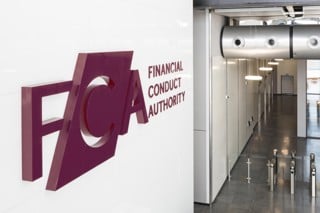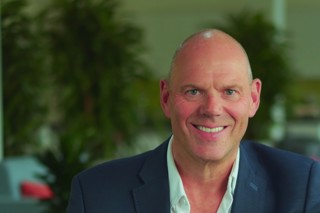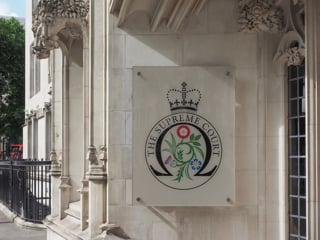The recent death of actor George Cole came as sad news, but even his greatest fans in the automotive industry may hope his most famous character Arthur Daley can finally be laid to rest, according to Willem van Lynden, director of sales and marketing at Boost Capital, a provider of business funding solutions to growing SMEs.
In a guest blog, he writes:
“Independent car dealers still struggle to shake off the stereotype of the shady wheeler dealer Cole portrayed for two decades in the Minder series.
“The reality is today’s independent car dealer must be serious, professional, and service-driven to compete against franchised rivals. Independents have to embrace new technology, be transparent to win trust, and, quite simply, work harder to wrest customers’ business from their larger peers.
“Britain’s auto industry is going through a purple patch - new car sales rose for the 41st month in a row in July, according to the Society of Motor Manufacturers and Traders, and the UK still boasts the biggest used car market in Europe. And just under one in four of all used cars is sold via an independent dealer, research by PwC shows.
“But the growth in new car purchases, fuelled by low interest rates and competitive financing deals, have hit independent dealers particularly hard. The Scrappage Incentive Scheme also took its toll in 2009, taking hundreds of thousands of older vehicles out of circulation, leaving many businesses struggling to fill their forecourts. And the recession saw franchised dealers encroaching on independents’ traditional territory of good value used cars. Independents’ numbers have suffered as a result, down by about a fifth over the last decade to number fewer than 4,500 outlets today.
“But independent automotive retailers are fighting back, turning perceived weaknesses to strengths. They may often be smaller, but SMEs are autonomous, nimble, and able to react quickly to changes in the market and customer expectations. Nowhere is this more evident than in the increased use of digital media. Smaller operators can quickly adopt these new forms of communication, with many recognising how much consumers are using the internet to research prices, look at a wide range of vehicles, and compare sellers all over the UK. This means dealers must be online – a website showing all vehicles for sale is a minimum requirement - and across platforms – more than 20 per cent of digital searches for ‘used cars’ are made on a mobile device, PwC says. And the more information that can be provided about a vehicle at this stage the better. The use of the internet is increasing transparency in the car market, and it is the independents who understand this, and truly embrace the openness technology encourages who will win in the battle for customers.
“Social media has been a great leveller for smaller businesses, and provides an incredible marketing opportunity for those who know how to use it. Boost Capital has outlined how small businesses can beat their bigger rivals with smart use of social platforms on its blog in the past. And Imperial Cars of Swanwick in Hampshire is a good example, with the independent dealer recently topping a poll by web analytics firm Birdsong of car business Twitter users for its mix of offers, comment, and customer news on its social feed. Customer service, family values, and specialist knowledge are some of the reasons the buying public choose independent dealers over faceless franchises, so socially savvy firms are encouraging satisfied customers to tweet about them, putting personality into their messages with photos and comments from staff, or demonstrating expert knowledge by retweeting links to industry and car news.
“One of the major merits of the social world for automotive dealers is it is genuinely boundless. You can market your offering to customers in Penrith or Penzance, and when it comes to buying cars, people are prepared to travel – one in five will go anywhere in the UK to view a vehicle, research by Birdsong indicates.
“Another great use of Twitter and other social platforms is for after-sales service. Smart outlets are using social media to create an immediate link with customers for problem-solving, comment-sharing, and service reminders. And, of course, independent dealers want to encourage owners to return to them when their vehicles need that service. The market for repairs and servicing is declining, Trend Tracker research shows (http://www.trendtracker.co.uk/blog/2015/07/the-changing-market-for-servicing-and-repairs ), but so is the tendency for consumers to get under the bonnet themselves. There is a clear opportunity for independents to win trade from those who shun the DIY approach.
“A further possible selling point is staff training. Independents such as Arnold Clark, Motorpoint and smaller operators like Kinghams of Croydon have been recognised for their efforts in training employees in sales, marketing, repairs, and management, and they wear these programmes as badges of honour. Well-trained staff equal better customer service, which itself attracts further custom.
“Winning the trust of customers remains one of the greatest challenges for those in the automotive field. Good, reliable customer service is known to yield business, with word-of-mouth recommendation still one of the most effective forms of marketing for dealers. The converse is also true – recent RAC research shows 30 per cent of customers have warned against a particular car dealer when they have been dissatisfied.
“An advantage franchised operators have over their independent peers is association with a recognised and trusted brand. But now independents have the chance to get accreditation from the RAC itself. The RAC BuySure scheme ensures dealers operate to a gold standard when selling cars, and the initiative is currently being rolled out across the UK after an initial trial.
“There is also an inherent value in being known as an expert in your field, and some independent dealers are specialising in sports car and convertibles, for example, or SUVs, or vintage vehicles. What is certainly important is knowing what people predominantly want in the immediate area, since this varies hugely in different parts of the UK, research from the University of Buckingham’s Centre for Automotive Management for British Car Auctions (BCA) shows. Reliable and trustworthy dealers are important to about a third of buyers in Yorkshire and Humberside, while 45 per cent of those in the South West want to be able to trade in a car. Car buyers may come from far and wide, but a dealer who tailors their main offering to local wants is likely to achieve greater success.
“In summary, while times may be tough for independent dealers, there are rays of hope. The BCA report estimates about 350,000 additional first-time used cars will be provided by the new registration boom of recent years, so more stock should begin appearing on forecourts soon. The RAC accreditation scheme has the potential to boost consumers’ confidence in independents. And the digital age provides smaller companies with the chance to punch well above their weight, and reach an enormous potential audience. Those independent dealers who innovate, serve customers well, and get the overall formula right, could yet find – in the words of the inimitable Daley himself – that the world is their lobster.”
Boost Capital is a provider of business funding solutions to growing SMEs throughout the UK.


















Login to comment
Comments
No comments have been made yet.